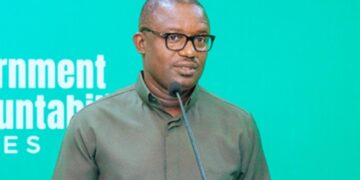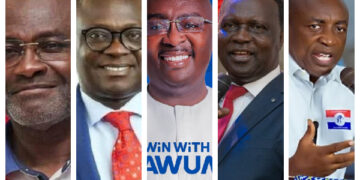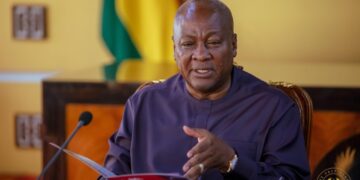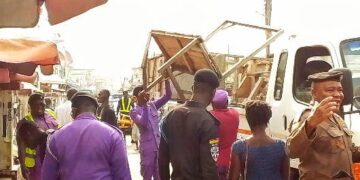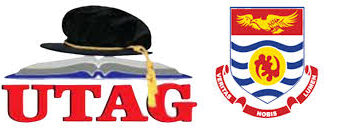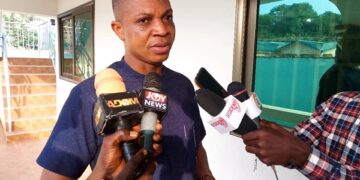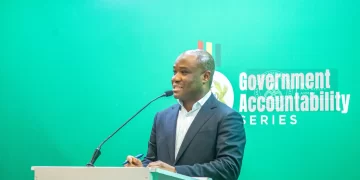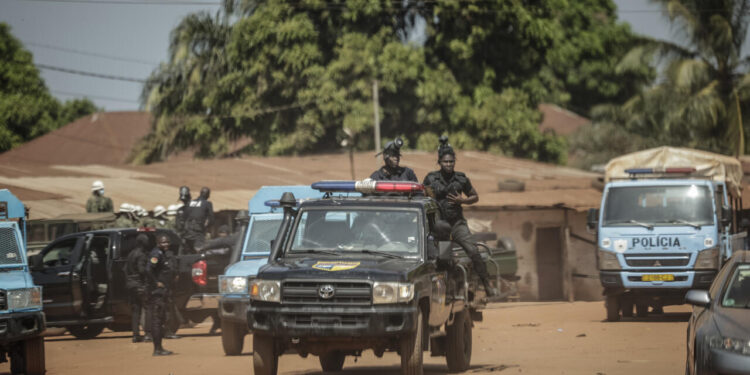Guinea-Bissau has descended into a deepening political crisis after a dramatic military takeover that forced President Umaro Sissoco Embaló from power, triggered a nationwide curfew, and installed a new transitional leader amid widespread tension and uncertainty.
The crisis intensified on Wednesday when gunfire erupted in the capital, Bissau, as soldiers suspended an ongoing electoral process just hours before provisional presidential and parliamentary results were expected to be announced. The military accused unnamed political actors—allegedly backed by a “well-known drug baron”—of plotting to destabilise the country, a claim opposition figures strongly dispute.
Deposed President Evacuated After ECOWAS Intervention
Following intense negotiations by the West African regional bloc ECOWAS, Embaló was flown out of Guinea-Bissau late Thursday on a chartered Senegalese military aircraft. Senegal’s foreign ministry confirmed his arrival, saying the deposed leader landed in Dakar “safe and sound” after his evacuation was secured.
Sierra Leone’s Foreign Affairs Minister Timothy Musa Kabba, speaking to the BBC, declined to comment on Embaló’s physical condition but stressed that ECOWAS’s immediate priority had been his safety. Sierra Leonean President Julius Maada Bio, who chairs ECOWAS, reportedly contacted Guinea-Bissau’s junta on Wednesday to obtain guarantees for Embaló’s protection.
A Transitional Leader Sworn In Amid Curfew and Closed Markets
Hours after Embaló’s removal, the military swore in Gen Horta N’Tam, the army’s chief of staff, as Guinea-Bissau’s transitional leader for a period of one year. The general claimed the intervention was necessary “to block operations that aimed to threaten our democracy.”
A strict night-time curfew was imposed as soldiers took control of major intersections and patrolled streets. AFP reported that shops and markets in Bissau remained shuttered on Thursday, with residents opting to stay indoors amid palpable tension.
Though borders were initially sealed by the military, all land, air, and sea routes were reopened shortly after Gen N’Tam’s inauguration.
Election Results Suspended, Opponents Detained
The coup came just a day before election authorities were expected to release provisional results from Sunday’s presidential and parliamentary polls. Both Embaló and his main challenger, Fernando Dias, had claimed early victory.
Government sources told the BBC earlier that Dias—who was backed by disqualified former prime minister Domingos Pereira—was detained alongside Pereira and Interior Minister Botché Candé.
Read Also: Payroll hitch delays November allowances; CAGD sets new December date
Dias has since declared himself “president-elect,” insisting he won approximately 52% of the vote. He accused Embaló of orchestrating an “organised” or “simulated” coup to prevent unfavorable election results from being released.
Civil society groups have echoed these accusations, suggesting the entire incident may have been staged to extend Embaló’s time in office. The former president, however, has not publicly addressed the allegations.
A Nation Trapped in a History of Instability
With at least nine coups or attempted coups since independence from Portugal in 1974, Guinea-Bissau is one of the world’s most politically fragile nations. Its strategic coastal location has made it a notorious hub for drug trafficking, further entangling politics, the military, and criminal networks.
Despite repeated international efforts, the country’s institutions remain vulnerable to power struggles and factionalism within the armed forces—widely seen as the country’s most dominant political actor.
International Condemnation and Growing Pressure
ECOWAS has suspended Guinea-Bissau from all its decision-making bodies and has demanded the military “return to the barracks” and restore constitutional order without delay.
The African Union also condemned the coup, calling for respect for democratic processes. UN Secretary-General António Guterres expressed “deep concern,” urging the “immediate and unconditional restoration” of constitutional governance.
With tensions still running high in Bissau, diplomats warn that the situation remains fluid. As regional and global actors apply pressure, Guinea-Bissau faces a long and uncertain road toward stability—and its citizens remain caught in the crossfire of yet another political upheaval.
SOURCE: BBCNEWS


